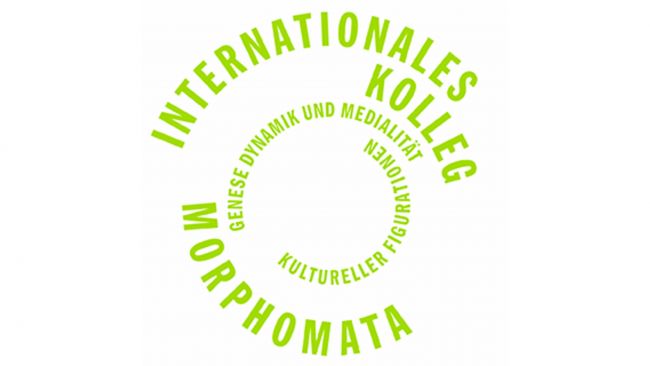Morphomata International Center for Advanced Studies (KHK-Morphomata)
University of Cologne

The “Morphomata International Center for Advanced Studies – Genesis, Dynamics and Mediality of Cultural Figurations” is one of the international Käte Hamburger Centers sponsored by the Federal Ministry of Education and Research under the auspices of the initiative “Freedom for Research in the Humanities” (project number 2009–2015: 01UK0905, 2015–2021: 01UK1505). About ten to fifteen fellows from different countries and specialties cooperate with researchers from Cologne in the analysis of cultural change. This dialogue with international academics allowed the Center to function as a locus of research in the Humanities – a think tank where interdisciplinary and intercultural perspectives can be brought to the fore. The Center’s fellows further have enriched university life through lectures open to the public, as well as their participation in conferences and publications. Besides the establishment of an international academic network, the Center also aims to foster the associations between cultural and educational institutions as well as the local media, and promoting this openness through exhibitions and events.
Through the use of the name Morphomata, the Käte Hamburger Center Cologne signals that cultural manifestations are not merely a storage of knowledge and concepts but are involved in defining them more precisely and even enlarging their range of meaning. Morphomata derives from the Ancient Greek μορφώματα (morphómata), meaning form as the result of attaining or being given shape. Together with the fellows, who cover a wide range of the Humanities, Morphomata has thus worked on cultural figurations of the particular, analyzing their emergence, their dynamics, their materials and discursivations. The basis of this is formed through the assumption that the history of cultural knowledge cannot be subsumed into a history of abstract notions and rational ideas; rather, knowledge can be found in potent aesthetic ideas, which are given shape, received, and passed on in works as well as practices of art and culture. With the fellows forming the core of a learning community, Morphomata has attempted to transcend national borders, disciplines and theoretical frameworks by working on case studies.
RESEARCH FOCUS
The main fields of research were:
- 2009–2011: Figurations of the Creative/Figurations of Knowledge and Time
- 2012–2015: Figurations of Death/Figurations of Sovereignty
In the second funding phase, the focus was on “Biography and Portrait as Figurations of the Particular”, which was addressed in the interrelationship between two Fellow Groups in the context of biography/modernity on the one hand and portraiture/antiquity on the other. The Fellows’ common interest in life descriptions and images as overarching and integrating objects of knowledge formed the basis for the combination of basic and specialized knowledge in all Fellow dialogues and facilitated the dialogue between the Fellow cohorts. The time frame of the research was structured by proposals for innovative questions that were derived from the working contexts of the two Fellow Groups, which were linked in a complementary manner and brought together in an annual conference:
- 2015–16: The Particular as the Exemplary?
- 2016–17: Competing Perspectives. Figures of Image Control
- 2017–18: Closed and Open Forms of Depiction
- 2018–19: Contrast and Complementary Figures for Portraiture and Biography
- 2020–21: Conclusion
The Fellows have enriched the university’s teaching offer through public lectures, conferences and publications. The results of the Center’s work are available in the two publication series “Morphomata” and "Morphomata Lectures Cologne”, among others.
FESTIVAL FOR WORLD LITERATURE
Under the title of a “Literator”, a Lectureship for World Literature was established from 2010 to 2013 with Daniel Kehlmann (2010), Péter Esterházy (2011), Sibylle Lewitscharoff (2012) and Michael Lentz (2013). From 2015 the “Literator” was expanded as a festival for world literature under the name “Poetica”:
- Poetica I 2015: “M’illumino d’immenso” (Guiseppe Ungaretti) / “Ich erleuchte mich durch Unermeßliches” (Translation: Ingeborg Bachmann) – Curator: Michael Krüger
- Poetica II 2016: “Blue Notes” – Curator: Aleš Šteger
- Poetica III 2017: “The soul and its languages” – Curator: Monika Rinck
- Poetica IV 2018: “Beyond Identities” – Curator: Yoko Tawada
- Poetica V 2019: “Rausch” / “States of Euphoria” - Curator: Aris Fioretos
- Poetica VI 2020: “Widerstand” / “The Art of Resistance” – Curator: Jan Wagner
- Poetica VII: “Sounding Archives – Poetry between experiment and documentation” – Curator: Uljana Wolf (more information here)